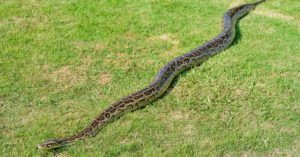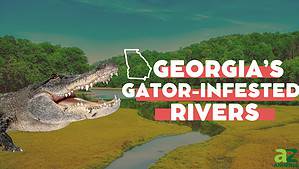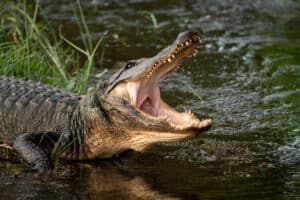
If you plan on heading to Lake Lanier anytime soon, you can expect to have a lot of fun in one of Georgia’s most popular bodies of water! The lake is known for its water sports, fishing, and more, but is it known for anything more… nefarious?
Well, today we are going to find out! If you are worried about alligators, we are answering the question: Are there alligators in Georgia’s Lake Lanier?
Let’s get started.
Searching for Proof of Gators in One of Atlanta’s Favorite Playgrounds
As a general rule, alligators don’t live in Lake Lanier. The winters in the northern portion of Georgia are a bit too cold for alligators to survive long-term. Even still, there have been occasional individuals in the lake that seem to have been left there by previous pet owners.
Georgia is home to hundreds of thousands of alligators, but does that mean they live all over the state? Thankfully, at least for anyone looking to swim in Lake Lanier, the answer is no. Lake Lanier is located to the northeast of Atlanta and isn’t able to sustain a native alligator population.
Lake Lanier is a large reservoir that was completed in 1956 and has become a local getaway for people living in the Atlanta metropolitan area. The lake is 57.92 square miles and is (usually) alligator free.
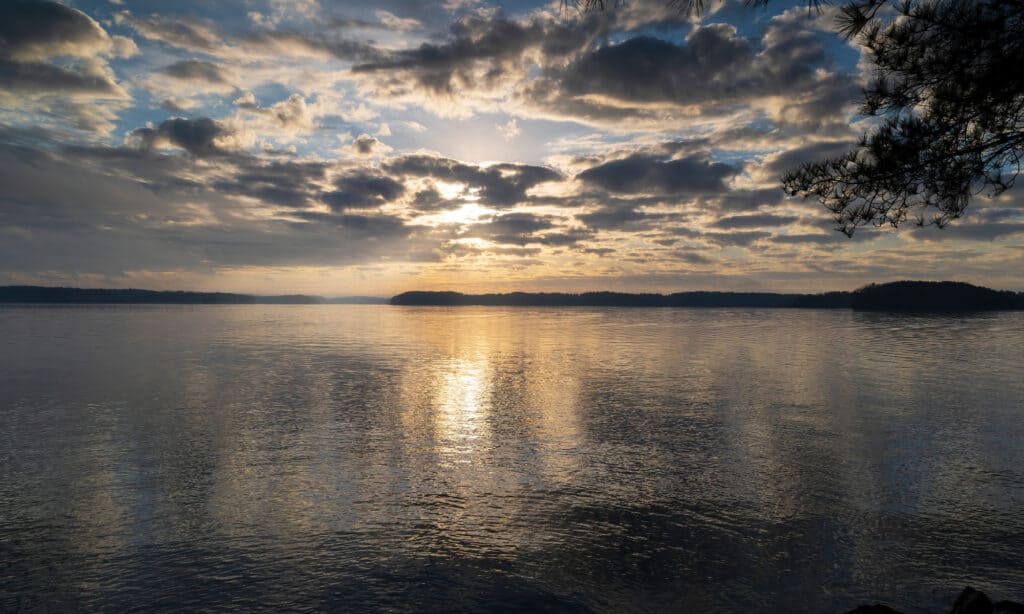
Lake Lanier isn’t warm enough for alligators to thrive.
©iStock.com/Steve Samples
Have There Ever Been Alligators in Lake Lanier?
That being said, that doesn’t mean that alligators have never been found in Lake Lanier! In fact, there are occasional sightings around the Atlanta area, including Lake Lanier.
One of the most recent examples of this occurred in August of 2016, only a few years ago.
An alligator, which is estimated to be about 2-to-3-feet long, has been seen on the north end of Lake Lanier near Don Carter State Park. According to the Georgia Department of Natural Resources, while the gator does not pose a threat to public, people should still give the animal space.
11Alive
The alligator was seen around four times, and due to its small size, wasn’t deemed a real threat to human life. Eventually, the alligator was relocated as it wouldn’t have survived the winter in the lake. Does this mean that alligators are moving north and will be infesting the crystal brown waters of Lake Lanier soon? Probably not.
The most common reason for alligators to be found this far north in Georgia is because of human intervention. Often, a human looking to take an alligator as a pet realizes that it’s getting larger and they can’t handle the creature. The result is to simply release it into the “wild”. Most researchers believe this to be the case for the gator seen in the lake back in 2016.
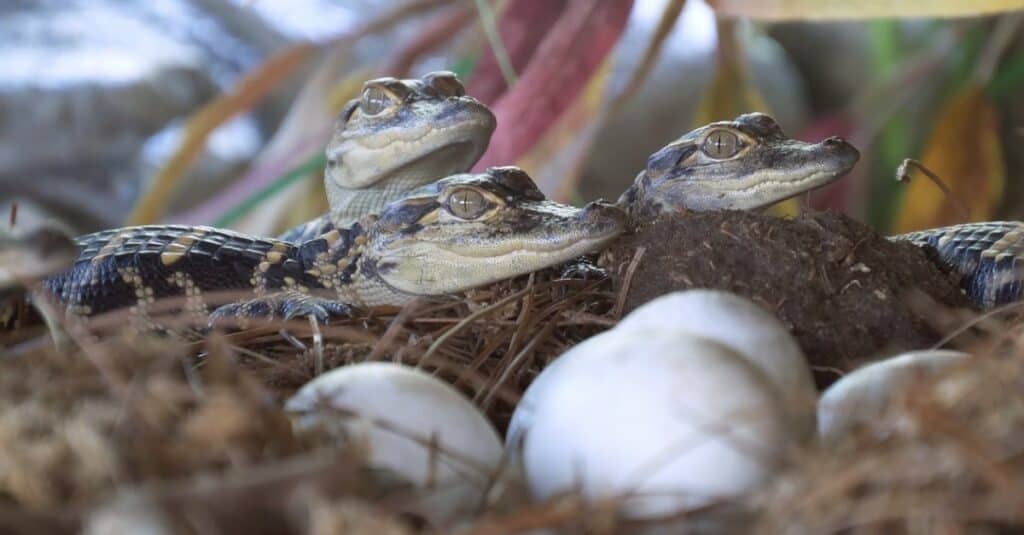
The gator spotted in Lake Lanier in 2016 was estimated to be around two feet long.
©DimaSid/Shutterstock.com
Where Do Alligators Live in Georgia?
Although alligators aren’t found natively in Lake Lanier, they are found in huge numbers across some parts of Georgia. The general rule is that alligators live at and below the Georgia Fall Line. The Fall Line is an ancient geological fault line that marks the historic boundary of where the Atlantic Ocean used to be. Today, it marks the line between the geologic regions known as the Piedmont and the Coastal Plain.
The coastal and southern regions of Georgia experience much milder winters, allowing alligators to survive in these places year-round. The same is true even in states with a more northerly range like North Carolina. Alligators are found along the coastal plains of the state (much further north than even the top of Georgia), but the milder winters allow long-term survival.
If you want to find alligators in Georgia, they are prevalent at and below the Fall Line which nearly bisects the state.
How long do alligators live?
The average alligator’s lifespan is anywhere from 30 to 50 years old. This can sometimes be much younger or much older. The alligator’s lifespan is similar to that of a human and some alligators have been known to live up to 100 years old.
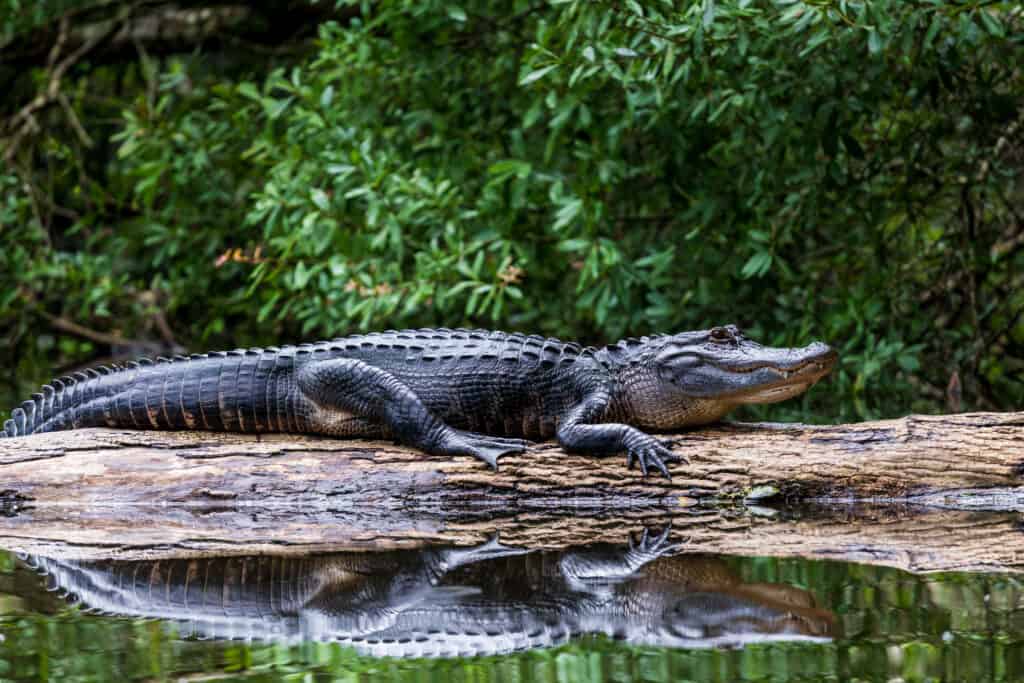
Georgia has a large alligator population that lives at or below the Georgia Fall Line.
©iStock.com/Joe Pearl Photography
How Many Alligators Live in Georgia?
South of the Fall Line, alligators are a regular part of life for Georgians. There are an estimated 200,000-250,000 alligators living in the state, most of which are found in the swamps and lakes in the warmest portions of the state.
A region known as the Okefenokee Swamp is home to the most alligators in the state, with around 13,000 alligators located within the 396,000 acres of protected land. This region is so large that it holds the title of the largest freshwater refuge east of the Mississippi.
If you plan on swimming, Lake Lanier is probably a bit safer than the Okefenokee Swamp!
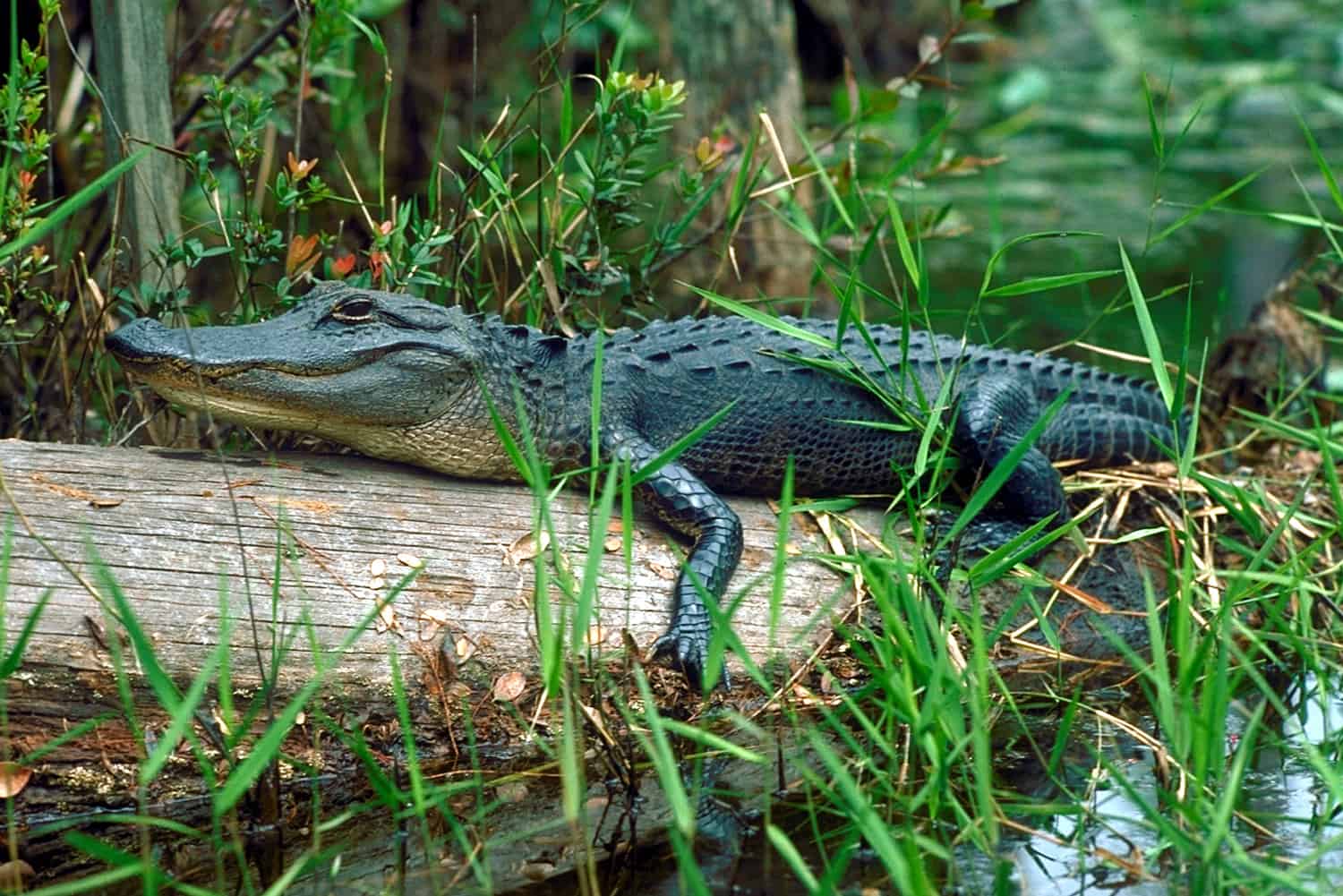
Okefenokee Swamp in Georgia is home to around 13,000 alligators like this one.
©Jonas N. Jordan, U.S. Army Corps of Engineers, Public domain, via Wikimedia Commons – License
Animals that Live in Lake Lanier
Beautiful Lake Lanier is home to many fish and birds and provides a water source for animals in the surrounding forest. Some of the birds you will see floating or soaring about are geese, herons, ospreys, and kingfishers. Birdwatchers and fishermen alike are drawn to Lake Lanier. Common fish in the lake are catfish, crappie, rainbow trout, striped bass, and sunfish. On land, you will see rabbits, deer, and wild turkeys foraging and stopping by for a drink.
The photo featured at the top of this post is © iStock.com/Bradley Proxmire
Thank you for reading! Have some feedback for us? Contact the AZ Animals editorial team.



